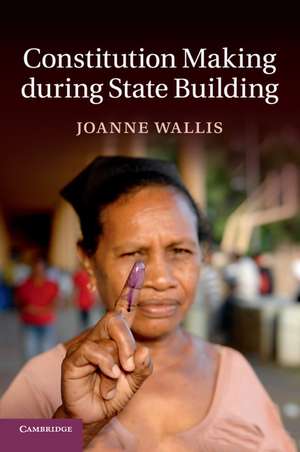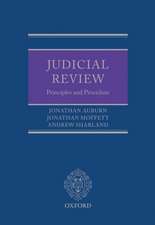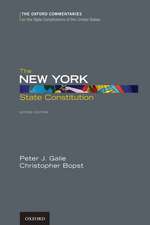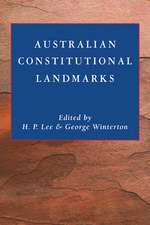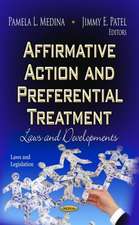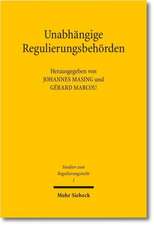Constitution Making during State Building
Autor Joanne Wallisen Limba Engleză Paperback – 3 aug 2016
| Toate formatele și edițiile | Preț | Express |
|---|---|---|
| Paperback (1) | 323.65 lei 6-8 săpt. | |
| Cambridge University Press – 3 aug 2016 | 323.65 lei 6-8 săpt. | |
| Hardback (1) | 788.63 lei 6-8 săpt. | |
| Cambridge University Press – 14 sep 2014 | 788.63 lei 6-8 săpt. |
Preț: 323.65 lei
Nou
Puncte Express: 485
Preț estimativ în valută:
61.93€ • 64.66$ • 51.14£
61.93€ • 64.66$ • 51.14£
Carte tipărită la comandă
Livrare economică 15-29 aprilie
Preluare comenzi: 021 569.72.76
Specificații
ISBN-13: 9781107666658
ISBN-10: 1107666651
Pagini: 420
Ilustrații: 3 maps 2 tables
Dimensiuni: 152 x 228 x 22 mm
Greutate: 0.56 kg
Editura: Cambridge University Press
Colecția Cambridge University Press
Locul publicării:New York, United States
ISBN-10: 1107666651
Pagini: 420
Ilustrații: 3 maps 2 tables
Dimensiuni: 152 x 228 x 22 mm
Greutate: 0.56 kg
Editura: Cambridge University Press
Colecția Cambridge University Press
Locul publicării:New York, United States
Cuprins
Part I. Normative Justification for Participatory Constitution Making: 1. The normative justification; 2. A constituent process; Part II. Minimal Participation in Timor-Leste: 3. State building and constitution making in Timor-Leste; 4. Constituent power in Timor-Leste; 5. Constituted power in Timor-Leste; Part III. Extensive Participation in Bougainville: 6. State building and constitution making in Bougainville; 7. Constituent power in Bougainville; 8. Constituted power in Bougainville; Part IV. Evidence for and against Participatory Constitution Making: 9. Comparing the constitution-making processes; 10. Role in state building.
Recenzii
'Joanne Wallis has made an extraordinary contribution to our understanding of the constituent process in twenty-first-century state-building. Based on empirically grounded studies of constitution-making processes in Timor-Leste and Bougainville, Wallis uses a comparative historical method to explore how public participation in constitution-making processes may assist state-building in deeply divided societies. Wallis persuasively argues that the effectiveness of new state institutions is linked to the success in achieving a liberal-local hybridity through popular participation. Her contextually rich analysis is a must-read for lawyers, political scientists, and policy makers around the world who are confronted with the failure of state institutions that were imposed or inherited in the postcolonial and World War II era.' Heinz Klug, Evjue-Bascom Professor of Law and Director of the Global Legal Studies Center, University of Wisconsin Law School
'One of the signal successes of [Wallis's] book is her thorough and wide-ranging survey of the literature on the topic. Moreover, she draws from the survey an extensive and detailed menu for constitutional planning committees on how best to go about creating a process that includes broad representation and that shows due respect for all segments of the new state.' Jean G. Zorn, Pacific Affairs
'One of the signal successes of [Wallis's] book is her thorough and wide-ranging survey of the literature on the topic. Moreover, she draws from the survey an extensive and detailed menu for constitutional planning committees on how best to go about creating a process that includes broad representation and that shows due respect for all segments of the new state.' Jean G. Zorn, Pacific Affairs
Notă biografică
Descriere
This book argues that fragmented, divided societies that aren't immediately compatible with centralised statehood can best adjust by emphasising the role of constitution making.
